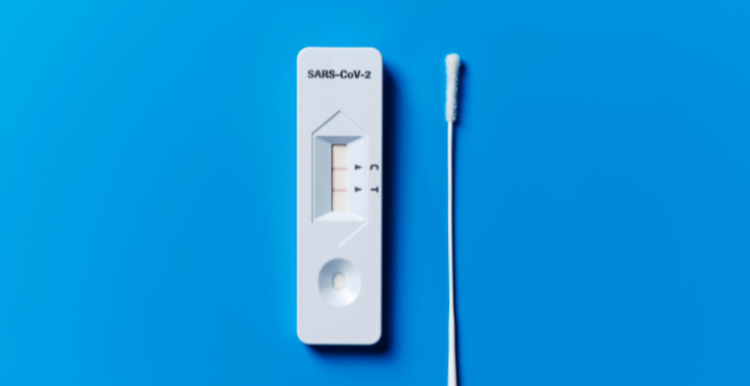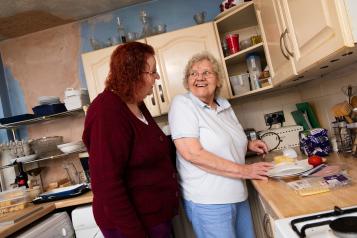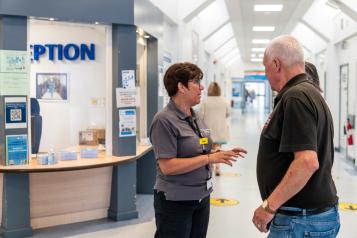What to do if you have COVID-19

Try to stay at home and away from others
Try to stay at home and avoid contact with other people if you:
- have any symptoms of COVID-19, and have a high temperature or you do not feel well enough to go to work or do your normal activities
- have tested positive for COVID-19 – this means it's very likely you have the virus
You should avoid being in close contact with people at higher risk from COVID-19.
This is particularly important if their immune system means they’re at higher risk of serious illness from COVID-19, even if they’ve had a COVID-19 vaccine.
If you are feeling unwell and do not test positive or test negative for COVID-19
If you do not feel well enough to go to work and do your normal activities, you should:
- try to stay at home and avoid contact with other people
- avoid meeting people at higher risk from COVID-19, especially if their immune system means they’re at higher risk of serious illness from COVID-19, even if they’ve had a COVID-19 vaccine
You can go back to your normal activities if you:
- feel well enough to do so
- do not have a high temperature
You can find separate guidance for children and young people aged 18 or under on GOV.UK.
When to seek medical advice
Go to 111.nhs.uk, call 111 or call your GP surgery if:
- you’re worried about your symptoms
- your symptoms get worse
In an emergency, go to A&E immediately or call 999.
How to avoid passing COVID-19 on to others
-
try to work from home if you can – if you're unable to work from home, ask your employer about options available to you
-
stay at home if you can – this helps reduce the number of people you have contact with
-
avoid contact with people at higher risk from COVID-19 for 10 days, especially if their immune system means they’re at higher risk of serious illness from COVID-19, even if they’ve had a COVID-19 vaccine
-
follow advice on how to avoid spreading COVID-19 to people you live with
-
let people who need to come into your home know that you’ve tested positive or have symptoms – they can then take steps to protect themselves, such as wearing a face covering that fits well, staying away from you as much as they can, and washing their hands regularly
-
contact your healthcare provider and tell them about your positive test result or symptoms if you’re asked to attend a medical or dental appointment in person
-
ask friends, family or neighbours to get food or other essentials for you
Try to stay at home and avoid contact with others if you have tested positive for coronavirus (COVID-19) or have symptoms of COVID-19.


